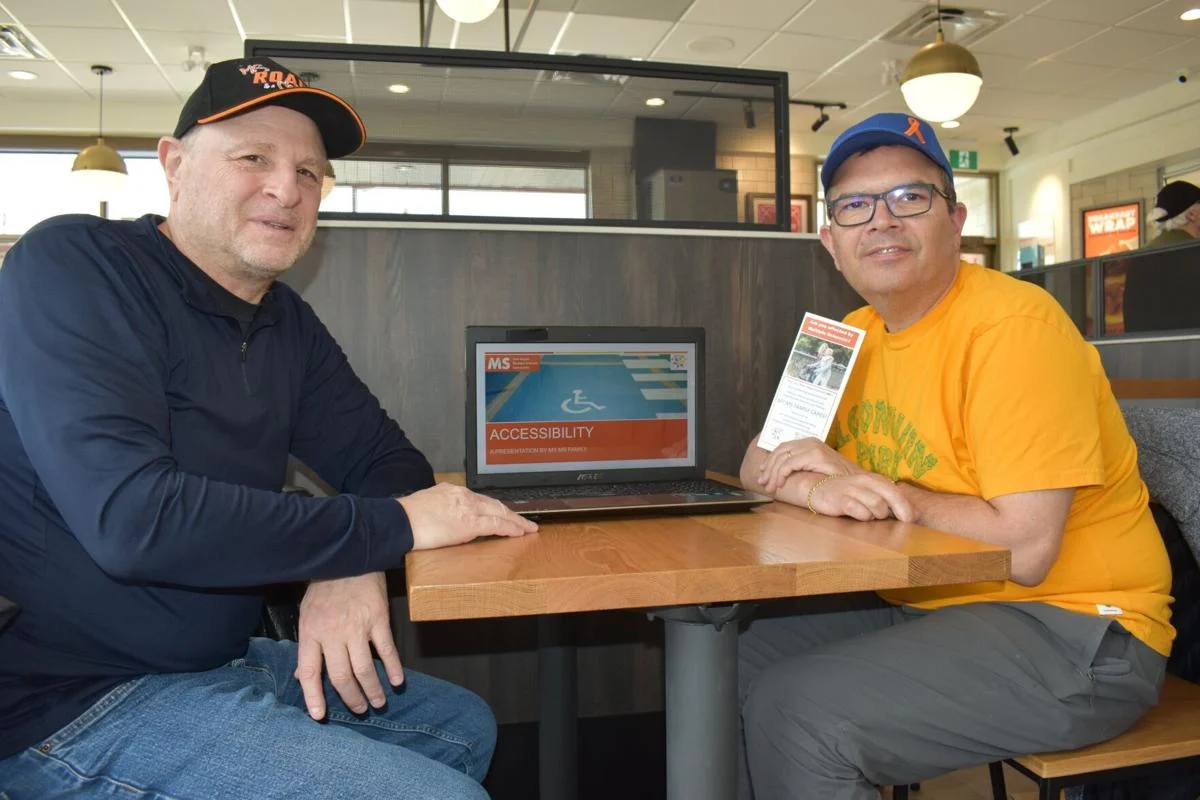From the moment someone is diagnosed with multiple sclerosis, a maze of barriers awaits.
But in York Region, such people aren’t alone.
Other residents who also have MS, an auto-immune disease affecting the central nervous system, volunteer to help them buy wheelchairs, hoists and with housekeeping, and to act as their collective voice.
Separated since 2018 from the MS Society of Canada, the group’s former York Region chapter calls itself My MS Family.
My MS Family isn’t shy about pointing out facts about private and public buildings which are said to be accessible but aren’t.
But the grassroots organization has a mission beyond all this: building a rehabilitation facility in York so MS patients who need it don’t have to take long, exhausting trips into Toronto.
“It’s time that York Region starts taking care of its own people,” says Peter Busciglio, My MS Family’s main spokesperson.
It’s an ambitious goal, but the region is growing — the province has demanded 150,000 new homes here by 2031 — and, Busciglio says, so is the need for a rehab facility not just for MS patients but people with Parkinson’s, ALS and other neurodegenerative diseases.
Of York’s four hospitals, only one, Mackenzie Health in Richmond Hill, has such a centre, and only offers rehabilitation services for cardiac, respiratory and stroke patients by referral from a physician.
Busciglio, a Richmond Hill man who once spent four weeks in rehab after an MS-related quadruple bypass, said My MS Family is lobbying MPs and MPPs and Toronto rehab hospitals for a 30,000-square-foot shared satellite of the Toronto Rehabilitation Institute, Sunnybrook Health Sciences Centre and West Park Healthcare Centre in York.
The three Toronto facilities said they are unable to comment now on the proposal, but Busciglio, a champion martial artist before he was diagnosed in 2005, said My MS Family is optimistic the group’s goal is within reach.
In a May 17 statement, Mackenzie Health acknowledged “there are fewer rehabilitation resources available” in York, but said the hospital supports “any proposal that would increase the availability of rehabilitation services for patients closer to home.”
There are different types of MS and people experience the illness in different ways, but obstacles to daily living are frustrating when they could be removed.
Busciglio and Peter De Campos, a My MS Family member diagnosed in 2010, recently met a reporter at a fast-food restaurant in Vaughan that turned out to have inaccessible features.
The women’s washroom door had an accessibility sticker, yet had no powered device allowing people with mobility issues to open it.
“You can’t come in there and you can’t come out,” Busciglio said.
Ramps for mobility devices are right near the drive-though and too steep, while the push-panel powered door at one entrance hasn’t worked for years, De Campos added.
People inspecting such buildings don’t really know what people with disabilities require; perhaps inspectors need to be someone who lives with a disability or is close to someone who does, he said.
De Campos wasn’t faced with some of the barriers until five years ago, when he became more dependent on his scooter.
At the restaurant, he and Busciglio were preparing to critique Vaughan’s accessibility record in front of the city’s councillors.
“The City of Vaughan needs to smarten up if it thinks it’s going to grow and service the (larger and older) population that is coming,” De Campos said, though both men stressed Vaughan is in the forefront of accessibility compared to other municipalities.
The group was preparing for a flag raising at city halls, including at Markham’s at 11 a.m. on May 29, World MS Day.
On June 1, the group will tour a brand-new activity room at West Park named for My MS Family after what the hospital calls a generous donation.
Bingo sessions, holiday cookie sales, a golf tournament and an annual charity car show, MS Road to a Cure — all raise money for health care and member needs.
Source: Yorkregion.com

